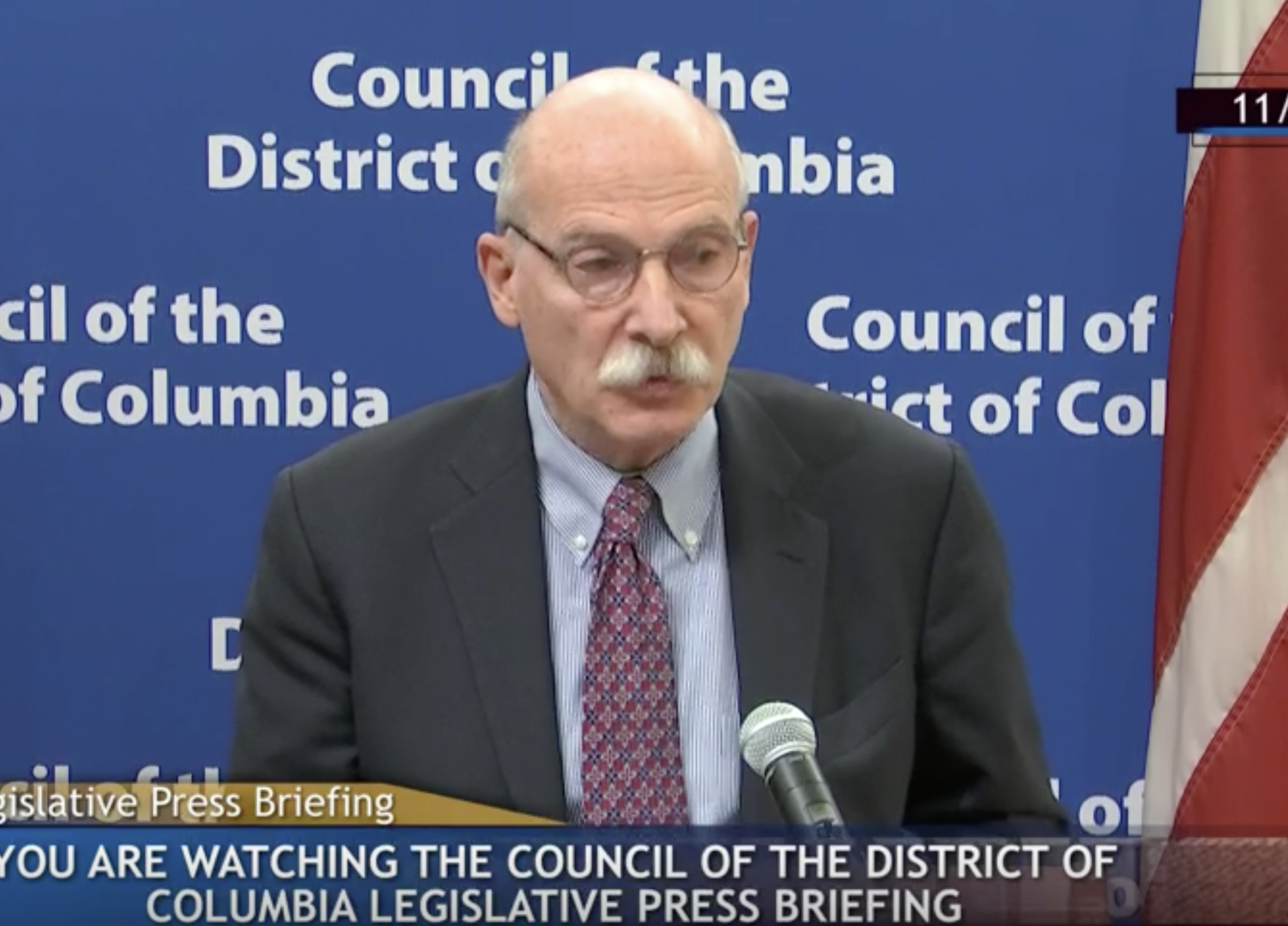After an immediate public backlash from advocates and business owners, D.C. Council Chairman Phil Mendelson on Monday scrapped part of an emergency bill that would have tightened the screws on unpermitted weed shops and delivery services.
The updated version of the bill, which the council will consider on Tuesday, no longer penalizes gray market cannabis businesses by slapping them with heavy fines, shuttering their storefronts and revoking their business licenses.
Mendelson announced the removal of the enforcement provisions at a legislative media briefing on Monday morning, acknowledging that “there’s been some controversy around the bill.”
He did not, however, exclude the possibility of putting stricter enforcement back on the table, insisting that unpermitted cannabis shops are illegal and create an “economic disincentive” for the medical weed industry.
“Not to say that we won’t revisit it, but there needs to be a better understanding with regard to what we’re trying to do with enforcement,” he said, adding that “we ought to enforce the law.”
The bill maintains provisions that ease restrictions on D.C.’s medical pot industry by extending the validity of medical cannabis cards, allowing patients to register with just one proof of residency and authorizing them to carry up to four ounces of cannabis flower.
“The Chairman made this decision after talking with staff and when it was clear that misinformation was guiding the conversation,” Lindsey Walton, a spokesperson for Mendelson’s office told The Outlaw Report. “He wanted to give councilmembers more time to understand those provisions before they voted on them.”
Cannabis advocates and shop owners sprung into action after Mendelson proposed the crackdown last week, slamming it as an unfair attempt to shut down the District’s cottage weed industry weeks before the D.C. Council is poised to legalize recreational cannabis sales. Many activists raised concerns that ramping up enforcement could have a discriminatory effect against Black residents, who they say make up the majority of employees at unpermitted cannabis businesses.
Representatives of Dc’s cannabis cottage industry calling out new legislation @councilofdc to crack down on I71 complaint businesses that gift cannabis for a straw purchase. Target @ChmnMendelson draft legislation @postlocal @DCMJ2014 pic.twitter.com/K5b2FmFD18
— Adam Eidinger (@aeidinger) November 1, 2021
Over the weekend, advocates for the Generational Equity Movement, a local coalition of Black-owned cannabis businesses, rallied business owners and employees against Mendelson’s bill by organizing educational events at gray-market cannabis shops around the District.
View this post on Instagram
Moira Cyphers, a lobbyist for the coalition, called Mendelson’s decision to back down on the enforcement provisions of his bill an “enormous victory” for D.C.’s gray market.
“I think our coalition members are breathing a really big sigh of relief because that bill would have put black store owners who employ primarily black employees in harm’s way,” she said. “That was just a free ticket to enhanced enforcement and seriously punitive measures.”
She said that Black people are already disproportionately arrested for weed-related crimes and that increasing enforcement goes against the spirit of I-71, the 2014 ballot measure that legalized the possession, gifting and home cultivation of cannabis in the District.
“Part of why I-71 was passed was to reduce policing of cannabis and here we are today still experiencing the same phenomenon,” Cyphers said.
The coalition has been gearing up for the D.C. Council’s first-ever hearing on a bill to legalize recreational sales on Nov. 19. Cyphers said the legislation contains some useful provisions when it comes to ensuring an equitable cannabis market, but that it has failed to include the perspectives of D.C.’s gray market business owners and employees.
“I think it’s more convenient maybe for D.C’s ruling class to just ignore these businesses and they should really be consulted because they know the market and the demand is there and they want to participate fully.”
As Mendelson was announcing the removal of the provisions on Monday morning, a handful of activists had gathered on the steps of the Wilson Building to urge the council to shelf the emergency bill.
Kymore Freeman, co-founder of We Act Radio, said it was hypocritical of Mendelson to call for a crackdown on the gray market while advocating for an equitable transition to legal weed in a separate bill to authorize recreational sales.
“How can you on one side want to benefit the community that has been targeted by racist laws and this failed drug war in America, and at the same time come back with this?” Freeman said.



